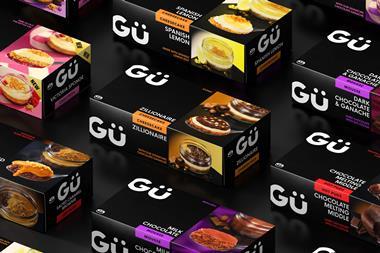Kevin Barrow, regulatory lawyer at law firm Blake Morgan, looks at the potential risks around making unsubstantiated health claims
It’s that time of year when many consumers are making resolutions to eat better and live a healthier lifestyle – but bakers would do well to remind themselves of the dangers of ‘puffing up’ any claims being made in relation to their own products.
Consumers are increasingly motivated to purchase by claims that products are healthy, and there is a temptation for producers to fall into the trap of making claims about their products that may, in some cases, be unsubstantiated.
The consequences of getting it wrong can be serious – both in terms of criminal financial penalty and reputational damage.
Local trading standards authorities and the Food Standards Agency (FSA) both have powers to intervene and to prosecute offenders.
However, the Advertising Standards Authority (ASA) also has powers to intervene and rule that certain marketing breaches the voluntary industry code, which can lead to reputational damage.
Nutrition and health claims on foods are covered by EU legislation, Regulation (EC) 1924/2006, which is enforced by the Nutrition and Health Claims (England/Wales) Regulations 2007. Under this legislation, a nutrition claim is a claim about a constituent of a food, while a health claim relates a food or one of its constituents to health or wellbeing.
So what are the traps?
Any general or specific claim attributed to the product is at risk unless backed up by evidence and/or recognised (and authorised) as a claim which can be made.
Nutrition claims that are commonly applied to baked goods include ‘high-fibre’ or ‘high protein’.
Under the regulations, a baked good can be deemed to be high-fibre if it contains at least 6g of fibre per 100g or at least 3g of fibre per 100kcal. A food product may be claimed to be high in protein where at least 20% of the energy value of the food is provided by protein.
The controls for health claims are more complex than for nutrition claims. A general health claim is a reference to a general benefit of a food for overall good health or health-related well-being – for example, claiming or implying the product is ‘good for you’ or helps reduce the risk of disease. If the claim is too profound – that the food can be used for preventing, treating or curing a human disease – then the product would be classified as a medicinal rather than a food product and fall foul of medicinal regulation.
General health claims should only be made if they are accompanied by an appropriate specific authorised health claim (set out on an EU Register) which should appear next to or immediately following the general health claim.
References to general non-specific benefits of a nutrient or food for overall health or health-related wellbeing may only be made if accompanied by a specific health claim.
Labelling such as ‘healthy’ or ‘superfood’ is only permitted if there is a specific health claim accompanying it in order to qualify the reference and to explain why the food or nutrient is healthy or a superfood.
The ASA Committee of Advertising Practice (CAP) Code is a good reference point. Section 15 of the CAP Code sets out the rules that specifically relate to marketing communications concerning food and associated health claims.
Section 15 reflects the Regulations. Departing from the CAP code can lead to sanctions, while breach of the regulations can result in a prosecution and high-level fine.
When considering making any health or nutrition claim, businesses should keep in mind whether their product meets the requirements for any nutrition claim and whether there is evidence to support any health claim.
Businesses can refer to gov.uk/food-labelling-and-packaging/nutrition-health-claims-and supplement-labelling and the Food Standards Agency websites for further information on food labelling.
As we head into 2019, a good New Year resolution would be to focus on what your product actually contains – and market it accordingly.
Producing par-baked products is fine – making ‘half-baked’ marketing claims is not!
































No comments yet